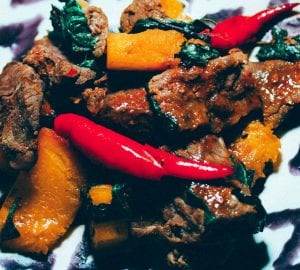Overeating and poor diets are causing people to gain weight and damage their long term health, and it is becoming an all-too-common problem. The ability to control your eating habits accounts for the majority of the reasons why people cannot seem to lose weight or complain about health issues.
While working out is important to a healthy lifestyle, much of the battle begins and ends in the kitchen, so controlling your diet and eating habits is necessary to live a long and healthy life. If you seem to be struggling with this, then you are not alone, and these are the most effective ways that you can control those habits.
Dietary Suppressants
Suppressants for your diet can come in many forms. They can be natural foods that are found as ingredients, raw foods, or supplements. These suppressants are not intended to completely replace your diet, only help you understand how your appetite may be impacted by your overeating. Of course, as with any supplement or new food, you want to discuss the impact on your body and health with a doctor, but many possible solutions are healthy. There are a lot of natural ingredients that are part of suppressants, such as caffeine, garcinia cambogia, and green tea extract. Many supplements contain these ingredients to help naturally combat overeating and may work for you.
Meal Prepping
The act of meal prepping is something that bodybuilders and athletes have been doing for decades. You portion out your meals and prep them for the coming week. Preparing your breakfasts, lunch, dinner, and snacks ahead of time allows you to create good amounts of food that contain all the macronutrients you need to stay healthy without eating with your eyes. Portioning out your food ahead of time takes away the stress of making food, which could lead to stress eating whatever you find in your kitchen that is easiest to eat. Meal prepping is an effective way to change your dietary habits.
Reduce Liquid Calories
The amount of your diet that comes from beverages and liquids would shock you. Most people assume the biggest calorie-dense parts of your daily diet are from solid foods and meals, but the number of calories in your drinks could be quietly hurting your weight and health. Sugary drinks like soda and juice are primary suspects, but alcoholic beverages such as wine, mixed drinks, and beer, especially are high in sugar and calories with little benefits. Even coffee could be impacting your daily caloric intake. High fructose corn syrup is used often in coffee chain specialty drinks, which is an extra few hundred calories every morning for you. Simply replacing these drinks with tea or water can improve your health, focus, and reduce your daily calories from bad sources.
Cook From Home
Instead of dining out or stopping for fast food, you should start pivoting towards cooking. Eating out and dining out can be fun for a date night every so often, but restaurant foods use high-fat content ingredients more often than not, and these meals are large portions that will damage your attempts to control your eating habits. Cooking at home works well for you tenfold. First, you are able to control the ingredients and portion sizes, and secondly, you are saving money by staying in and making a home-cooked meal rather than spend $50 for a single dish. Cooking at home builds your relationship with food, which is a big psychological part of controlling your eating.
Repair Your Relationship With Food and Your Body
Continuing on with that line of reasoning, your body and your relationship with food play a major role in the ways you interact with eating. The psychological impact of being self-conscious about food choices and eating habits can stem from any number of reasons. Stress eating, eating away sadness, lower-income to purchase healthier foods, or self-conscious thoughts about your body and working out. Repairing this relationship begins with understanding that food is not in control, you are, and that you need to recognize and journal when your eating habits have taken control. It is a process, so some days you may overeat some junk food, but that does not mean you have failed and should fall back into those habits. Recognize when your relationship with food falters, and learn from it for next time.
Eating habits, and controlling them, are a struggle that many people deal with on a day-to-day basis. For those reasons, there is a lot of information available to help you take back control of your life and your diet. Hopefully, this information is among the resources you use to help understand how you can improve your lifestyle and your health.








